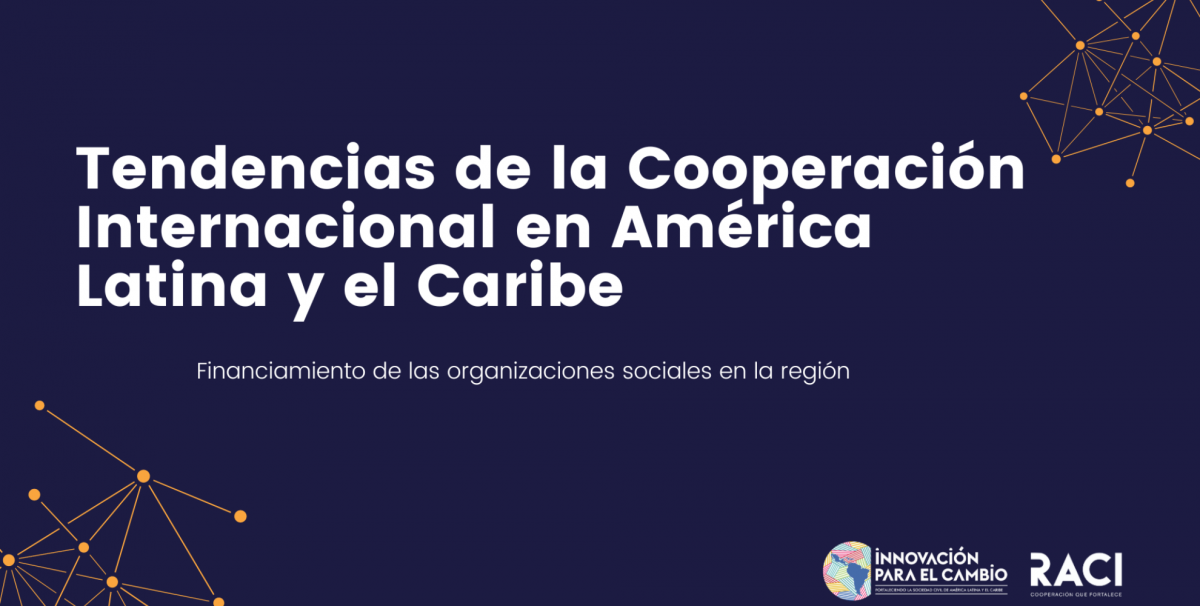On Friday, March 31, we present our latest study on International Cooperation Trends in Latin America and the Caribbean.
With the support of Innovation for Change, the research was carried out by our RACI team: Ailen Moreno, Projects and Research Coordinator, and Chiara Castellani, Projects and Research Manager.
The discussion began at 11 a.m. (ARG) with the presentation of the framework of the proposal and the results of the international cooperation report.
This study was carried out in order to have a clear image of what the financing scenario is like today for Civil Society Organizations. We believe that it will be an essential tool to make visible the problems of the region, the most unequal in the world, in the eyes of governments, the largest CSOs, companies and society as a whole.
The research was done through a qualitative-quantitative methodology that included 243 complete responses, 15 interviews with donors and recipients that covered 19 countries and 4 subregions.
During the event, we had a large panel of professionals and experts in International Cooperation to discuss: Carla Musi (OECD), Belén Arce (Banco Galicia), Ines Pousadela (CIVICUS) and Andres Gutierrez León (RECID).
Belén Arce, from Banco Galicia, spoke to us about public-private partnerships and how private sector entities, working together with Civil Society organizations, can multiply the impact of their actions.
Carla Musi, from the OECD, took advantage of the space to present some conclusions from the report Members of the Development Assistance Committee and Civil Society, covering the relationship between the DAC (Development Assistance Committee) and Civil Society and some recommendations when address this link.
For his part, Andrés Gutierrez León, from RECID, shared the importance of renewing the ecosystem of international cooperation for development and argued that international cooperation has several mechanisms and modalities beyond financing understood as resources.
The panel ended with a presentation by Inés Pousadela, from CIVICUS, who discussed our study and a study carried out by CIVICUS, with the support of Innpactia, on access to resources for CSOs.
Soon you will be able to find the complete presentation on our YouTube channel, stay tuned to our social networks where we will announce it.
At RACI we believe in the importance of International Cooperation, not only in a financial sense, but it is about generating alliances and spaces for dialogue, where we can mutually enrich each other and this space, without a doubt, has had that spirit that characterizes us so much.
Thank you all for participating!

